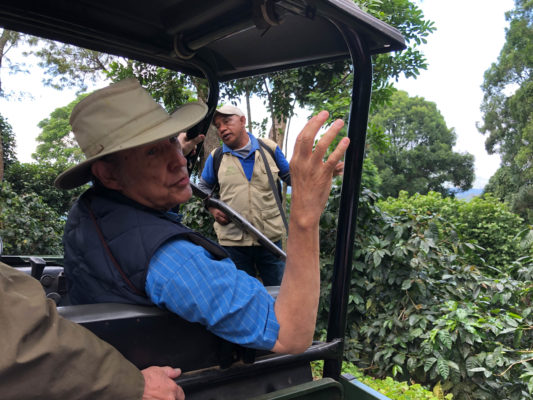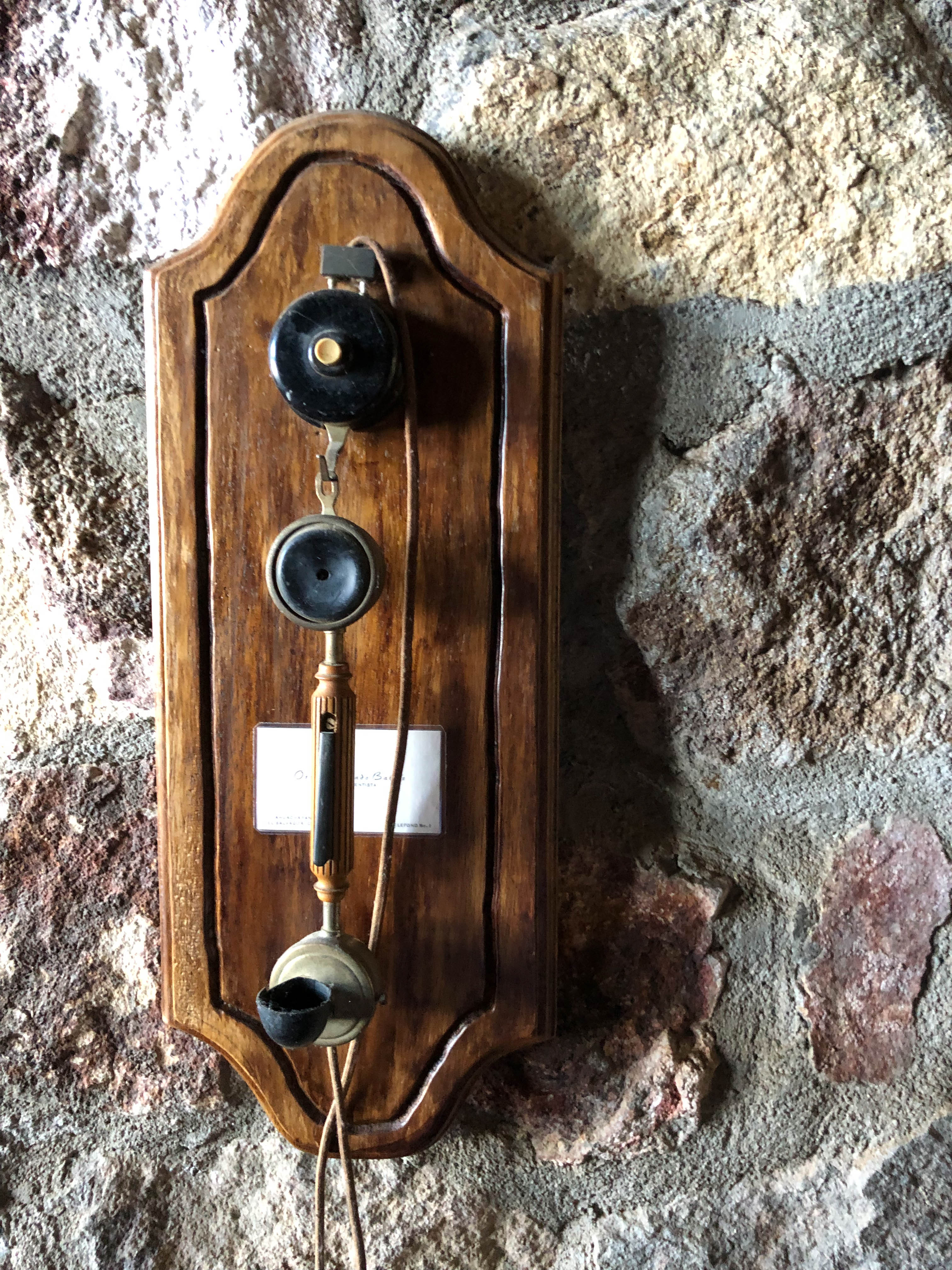I snapped this picture when visiting Montecarlos, the coffee farm on a volcano in El Salvador. If you’ve had coffee at Clover in the past few years chances are you tasted Montecarlos. George Howell (roaster) invited Christopher Anderson (head of food at Clover) and me to join him on a trip down there. I’m going to share more about that trip in upcoming posts. There will be 1/day for the next week or 2.
I’m going to talk a lot about coffee trees and flavors and smells and details of how coffee is grown.
But I’m starting with this phone. Telefono numero 1.
My memory of the trip is vivid: spectacular vistas and rising mist, juicy coffee fruit, the genuine openness and kindness of our hosts and farmers, and George Howell’s company. There were also many armed guards. The first we encountered at a gas station convenience store. Yup. A large weapon crossing the chest of a guard at a convenience store. It made me appropriately uncomfortable while I bought $1.87 sunglasses and $0.32 chips that looked like Doritos but had a dragon blowing fire on the bag. There were guards at the farm. Fences. Gates. Bullet-proof vehicles. Guard dogs. I heard the word peasant used. Accurately I guess. But it felt surprising.
It’s a complicated mix of emotions. And confusion. I understand some of what I’m seeing, but not all of it. It’s not my country.
It’s obvious that Carlos, who runs the farm, thinks deeply about his country and the future and is very conscientious. El Salvador is a poor country. Good jobs are scarce. Today there is a rash of crime related to drug trafficking.
Carlos comes from a family that has been in El Salvador for a long time with considerable property and influence. Many people who have his background have left El Salvador. Carlos didn’t.
Carlos went to school in the US. In the 1980s he was responsible for trading more kilos of coffee than anybody else on Earth. He was working as a trader in NYC. But he came back to El Salvador to try growing his own coffee. His family had some land that used to be a coffee plantation. They were the first to grow Pacamara coffee, a big deal in the industry. Over the years he has grown his farming operation substantially. He pays his farmers far above the wages of surrounding specialty farms. He invests capital in improving and growing the farm, and as a result his coffee sells at a higher price than the commodity market. That’s a good thing because the commodity market is at $1.00 right now and production alone in El Salvador costs $1.75/ lbs. More on that in later posts.
So back to Telefono no. 1. This was Carlos’ grandfather’s phone. His number was number 1. Which I can only guess means he was the first in his town? county? to have a phone! Carlos returned to El Salvador to restore a farm that had been in his family for 6+ generations. If Carlos hadn’t done that, there would be a lot of coffee jobs that wouldn’t exist, we wouldn’t have this beautiful coffee to fill our cups. And the virgin forest in the caldera of the volcano, one of the few left in El Salvador, may not have been protected.
We have simple questions we try to answer when we visit suppliers. How are things being done? Is the food being taken care of? Do I trust this person? Do they share our values? Are they caring for their land with a long-term vision? Are the people working here happy? Is this the best person for me to get Clover’s customer’s $ to?
Visiting El Salvador isn’t like visiting a farm in Western Massachusetts. It’s much more complicated in El Salvador. I had to ask a lot of questions to get to answers. And to be honest I don’t think I have perfect understanding of everything.
Carlos was great. I’m glad he’s doing what he’s doing and was deeply honored he shared it with me. His coffee is delicious. And coffee is intertwined with poverty and power, opportunity and history and global politics. These facts exist side by side in every delicious cup we drink.



